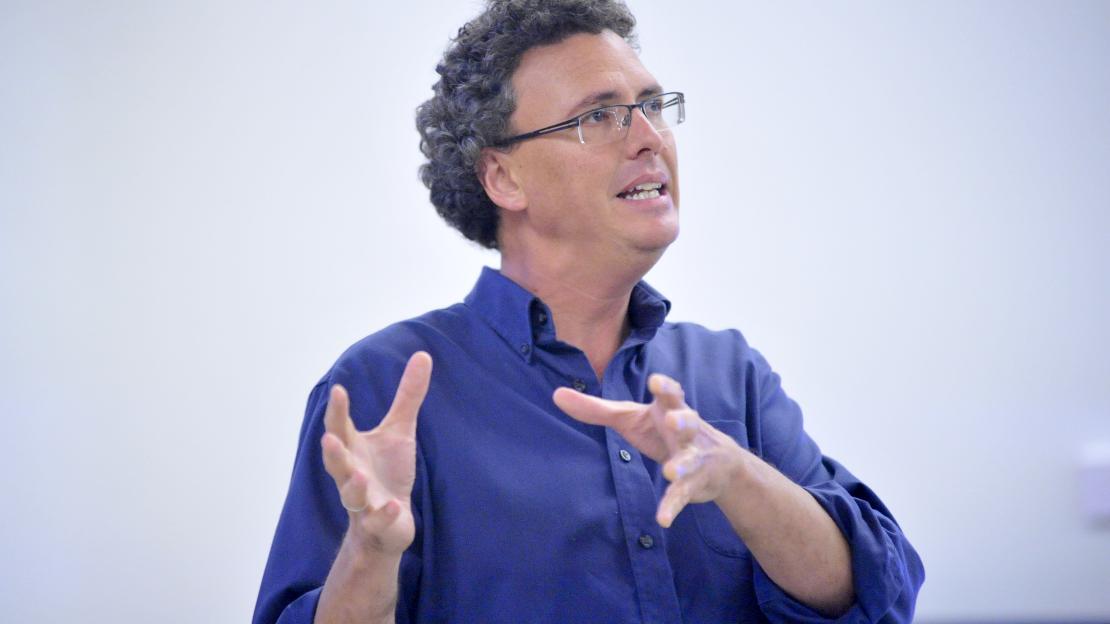After high school, Steve Joordens avoided university. He travelled, worked on farms and was an assistant manager at Kmart. School was not for him. He wouldn’t know how wrong he was until he finally began studying psychology and computer science at the University of Waterloo. He found a passion for psychology and started researching human memory and consciousness.
Joordens knew his research was reaching only a small audience and he wanted a larger outreach and “to make some kind of difference.” So he fell into teaching and is now a Psychology professor at U of T Scarborough.
He finds the school is a good fit. “It’s always been hugely multicultural, and I love to sit and talk to a student and see the world through a different lens. It’s them teaching me.”
“It’s always been hugely multicultural, and I love to sit and talk to a student and see the world through a different lens. It’s them teaching me.”
When Joordens became a grandfather, he immersed himself in research and practices to improve learning. His real goal is that his grandchildren won’t go to class and be bored. “I want to make education fun and engaging for them.”
In the past few years, Joordens has married his interests in learning and technology with his work on the development team of peerScholar — a learning program geared at using technology in the classroom while building learning communities for students. “When we started peerScholar we were all just researchers,” he says, “but the program pushed us to apply our research and create something useful.”
If students get multiple choice exams, as they did when Joordens first started teaching, they learn to memorize. But an online learning community where they’re forced to think critically, present arguments, be open to opposing arguments, and reflect back on their own work after learning the thoughts and opinions of classmates — this allows them to strengthen skills outside the course curriculum.
When Joordens sees people addicted to anything in technology, it makes him wonder: Maybe it’s possible to “take some of those principles and somehow make them as interesting in an education experience as they are in a social experience,” he says. “Can we make education addictive?”
